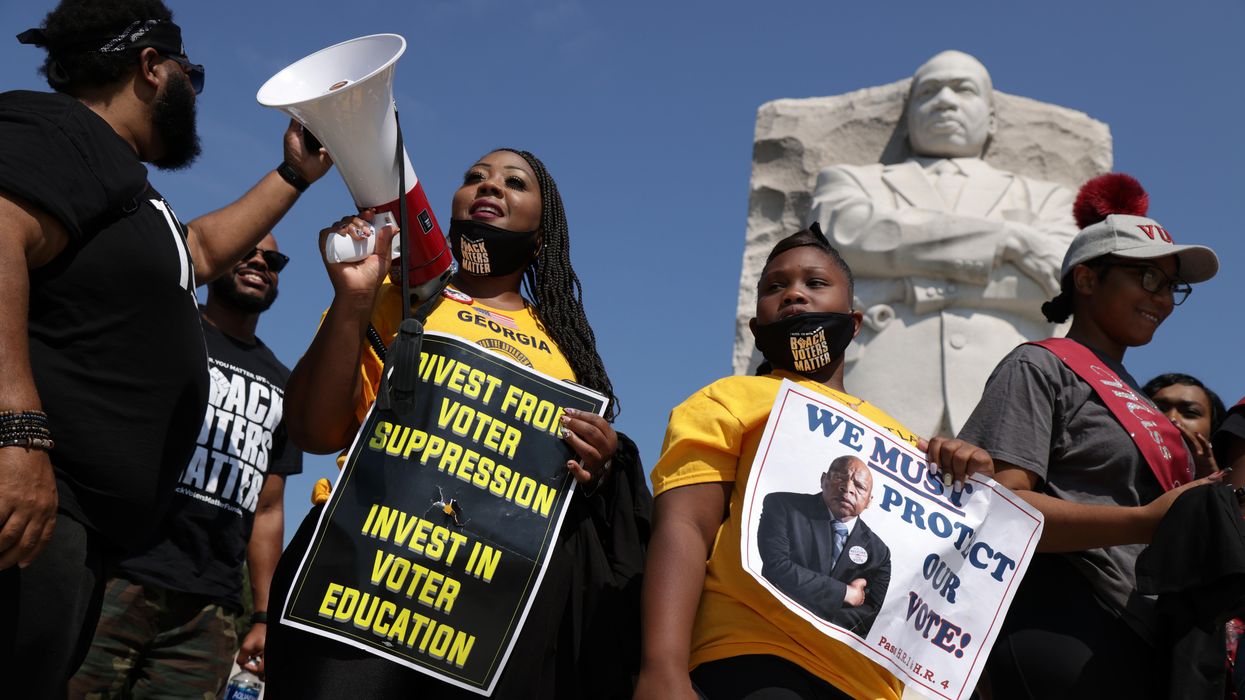As the House returns from recess this week, Democrats will make their latest push for a major upgrade to voting rights protections nationally.
The long-awaited John Lewis Voting Rights Advancement Act was introduced by Rep. Terri Sewell of Alabama last week, and House Democratic leaders say a vote on the bill is imminent.
Voting rights advocates believe the VRAA would provide critical protections for minority voters at a time when many states are enacting new limits on voting access. But like the For the People Act, it's unclear how the VRAA will overcome a Republican filibuster in the Senate.
What would the Voting Rights Advancement Act do?
Named after the late civil rights leader and lawmaker John Lewis, the VRAA would restore and strengthen provisions of the original 1965 Voting Rights Act. Primarily, it would reinstate preclearance, or the requirement that certain jurisdictions get advance approval of their election laws from the Justice Department.
Initially, preclearance prevented states (or portions of states) with histories of racial discrimination from enacting additional laws that suppressed the rights of nonwhite voters. But in 2013, the Supreme Court struck down the constraint, finding that, while previously appropriate, it was no longer necessary and placed an unconstitutional burden on governments.
The VRAA would use a new formula to determine the states and localities that require federal oversight. Only places that meet a high threshold of infractions — 10 violations, if at least one is statewide, or 15 total over the last 25 years — would be subject to preclearance.
House Democrats passed a version of this bill in 2019, but it was later blocked by Senate Republicans. In this second attempt, Democrats added a provision addressing a Supreme Court decision from earlier this summer. In Brnovich v. Democratic National Committee, the court's conservative majority ruling made it harder to challenge election laws for being potentially discriminatory against minority voters. The VRAA would amend the Voting Rights Act to eliminate this higher standard for voter discrimination challenges.
Voting rights advocates see the VRAA as a critical tool for protecting minority communities not only from restrictive election laws, but also from partisan map manipulations. Most of the country is at a high risk of gerrymandering as politicians control the redistricting process in 39 states.
How is this bill different from the For the People Act?
Democrats and voting rights advocates say the VRAA is not a replacement for the For the People Act. Instead, they say, the two bills would work in tandem.
While the VRAA would prevent discriminatory voting laws from being enacted in the future, the For the People Act would establish nationwide standards for voting and election policies.
The For the People Act would mandate automatic voter registration, two weeks of early voting and no-excuse absentee voting, among other voting expansions. It would also eliminate partisan gerrymandering by requiring states to use independent commissions to draw election maps. And the bill would curb the influence of wealthy special interests by creating a small-dollar public financing system for federal elections and bolstering transparency around political spending.
What's the likelihood the VRAA will become law?
Similar to the For the People Act, the VRAA will face steep opposition in the Senate once it passes through the House. Only one Republican, Sen. Lisa Murkowski of Alaska, has signaled support for the legislation, meaning it likely won't receive the 60 votes needed to overcome a filibuster.
In June, Republican Senators blocked a motion to begin debate on the For the People Act, stalling its progress. Democrats promised to make another push in September, but there is no clear path forward for either bill unless the filibuster is reformed or eliminated.




















Trump & Hegseth gave Mark Kelly a huge 2028 gift